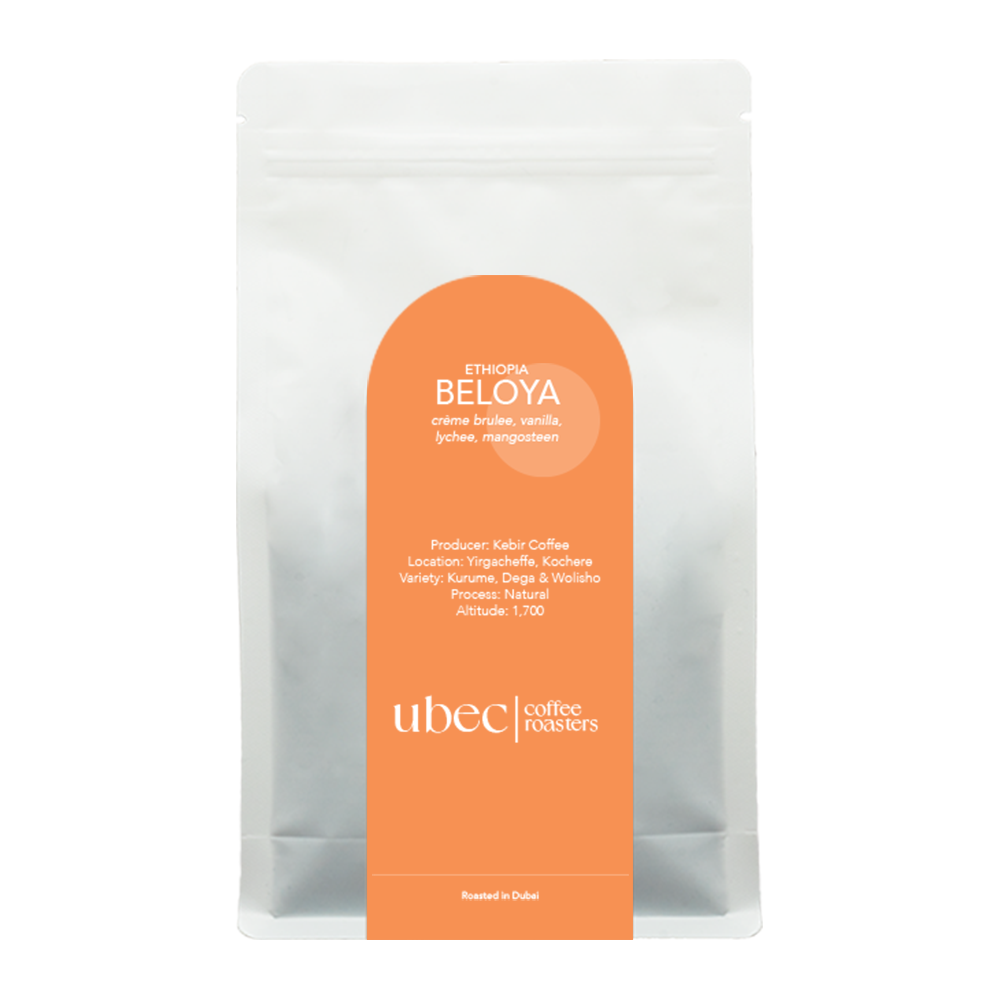UBEC COFFEE ROASTERS
Ethiopia, Beloya
Ethiopia, Beloya
Regular price
Dhs. 55.00
Regular price
Sale price
Dhs. 55.00
Unit price
per
Couldn't load pickup availability
Washing Station: Beloya
Altitude: 1700 MASL
Producer: Kebir Coffee / Various Small Coffee Holders
Crop Year: 2022
Process: Natural
Variety: Kurume, Dega & Wolisho
Taste Profile: Crème Brulee, Vanilla, Lychee, Mango Steen,
Kochere is one of the woredas in the Southern Nations, Nationalities, and Peoples'Region of Ethiopia. Part of the Gedeo Zone, Kochere is bordered on the east by Gedeb, on the southwest by the Oromia Region, and on the north by Yirgachefe. Towns in Kochere include Fisehagenet and Chelelektu. Gedeb woreda was separated from Kochere.
PROCESS
Natural Coffee Process The arrival cherry is sorted by hand first to separate the less dense cherries. Then the good cherry is taken to raise bed to dry under the sun light. This might take for about 21 days. When the coffee is dried with cherry, it is milled to remove the husks and stored in the warehouse and transported to the final processing warehouse. It is filled with 60 Kg bag and ship.
THE VARIETY
Kurume
Kurume is one of the regional landraces identified in the Yirgacheffe area. As with many regional landraces, the names applied to the coffee varieties are borrowed from the names of indigenous trees. The Kurume tree bears small fruit with a good annual yield, similar to Kurume coffee’s small cherries and bountiful harvest. Kurume is a commonly grown variety among farmers in the Guji and Gedeo Zones, which includes Yirgacheffe. Sometimes, the Kurume name is applied to JARC-selected varieties due to the similarities in the trees’ appearance.
DEGA
Dega is a regional landrace named after an indigenous tree. The wood of the Dega tree omits a sweet, fragrant aroma, when burned for firewood, that is peculiarly similar to the smell emitted during coffee roasting. The Amharic word “dega” means “cool highland area”, that also describes the agro-ecological conditions where Dega coffee grows.
WOLISHO
The Wolisho varietal is a typical ancient variety that is found in the highlands of Ethiopia. Wolisho is a regional landrace named after a tree indigenous to Gedeo and the surrounding area. This tree bears large fruit with inconsistent yearly yields. Wolisho plant is distinguished by its large fruits, tall canopy, stiff stem, and long leaves. Due to the tree height, the fruits take longer time to mature, and the slow maturation accounts for high quality of the beans.


